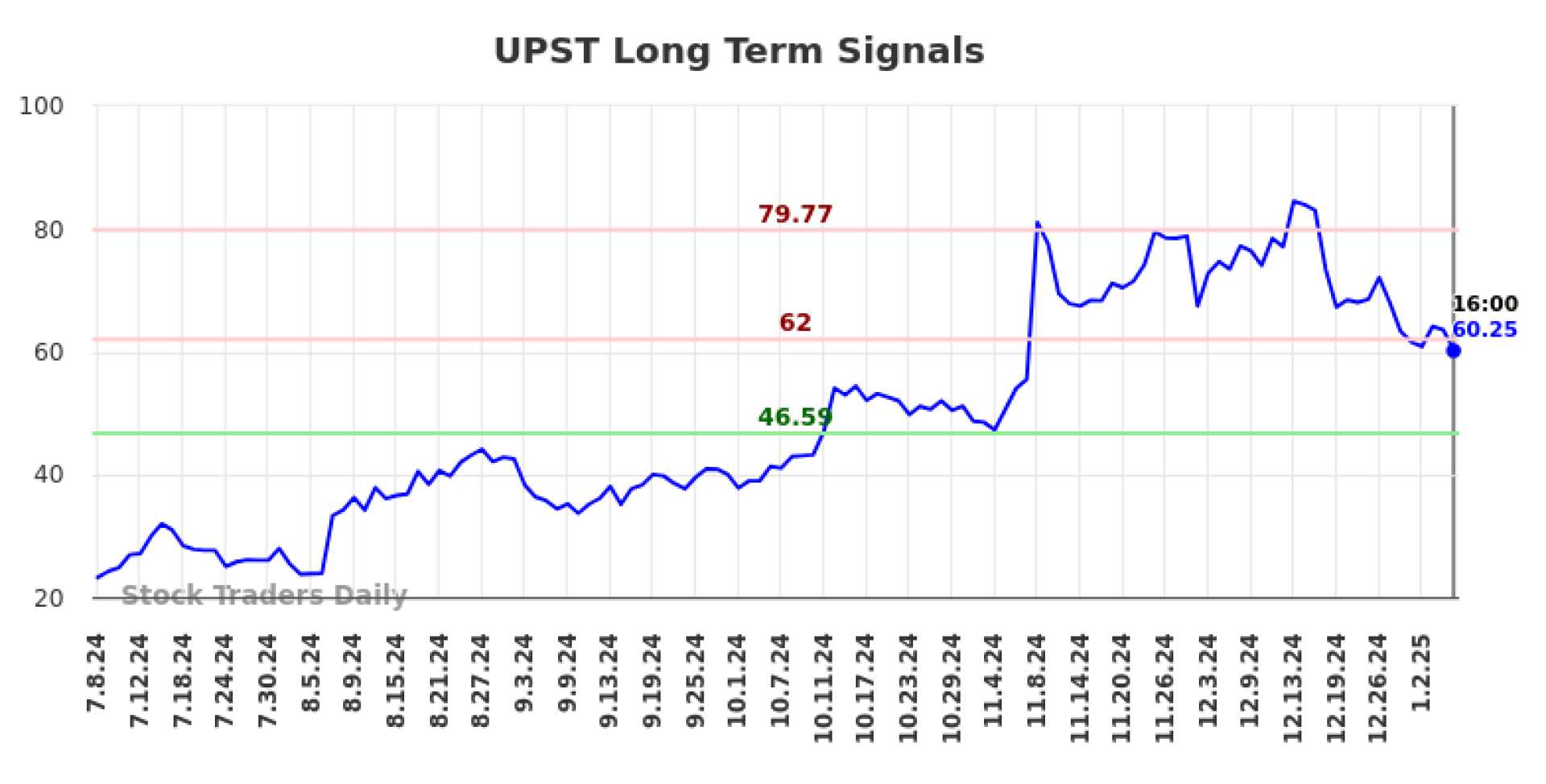Business
Upstart Holdings Stock Dips as Market Gains: Key Earnings Preview

Upstart Holdings, Inc. (UPST) saw its stock price decline by 0.87% to $63.52 in Monday’s trading session, underperforming the broader market as the S&P 500 rose by 0.55%. The tech-heavy Nasdaq gained 1.24%, while the Dow Jones Industrial Average slipped 0.06%. Investors are now turning their attention to the company’s upcoming earnings report, expected to show significant improvements in key financial metrics.
Analysts anticipate Upstart Holdings will report a loss of $0.05 per share, a 54.55% improvement compared to the same quarter last year. Revenue is projected to reach $180.03 million, marking a 28.31% year-over-year increase. These estimates reflect growing optimism about the company’s ability to navigate challenging market conditions and expand its financial services platform.
Recent revisions to analyst estimates have been closely watched, as they often signal shifts in business trends. Upstart Holdings currently holds a Zacks Rank of #2 (Buy), indicating positive sentiment among analysts. The Zacks Rank system, which ranges from #1 (Strong Buy) to #5 (Strong Sell), has a proven track record of outperformance, with #1-ranked stocks delivering an average annual return of 25% since 1988.
Valuation metrics also highlight Upstart Holdings’ premium positioning within its industry. The company’s Forward P/E ratio stands at 100.13, significantly higher than the industry average of 10.24. This premium reflects investor confidence in Upstart’s growth potential, despite its current losses. The Financial – Miscellaneous Services industry, to which Upstart belongs, ranks in the top 23% of all industries tracked by Zacks, with a Zacks Industry Rank of 57.
As the earnings announcement approaches, market participants will be closely monitoring any updates to analyst estimates and industry trends. Upstart Holdings’ performance could serve as a bellwether for the broader financial technology sector, particularly in light of ongoing economic uncertainty and shifting consumer behavior.












